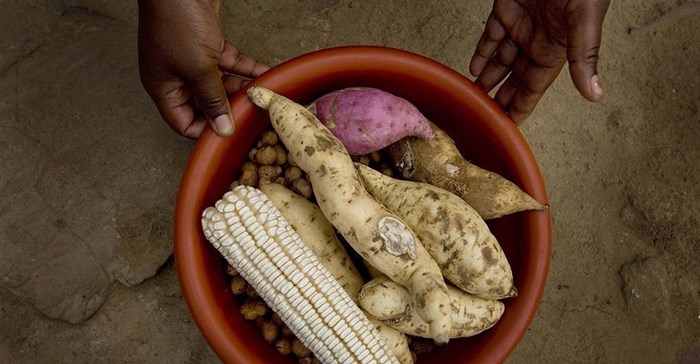
Top stories






More news

ESG & Sustainability
#AGES2026: How to back Africa's next-gen green and blue entrepreneurs















Logistics & Transport
#Budget2026: Road freight logistics and what it means for consumers

Agriculture will need to feed a population of 8.5 billion by 2030, and it will need to provide food and secure livelihoods without compromising the environment - highlighting the importance of sustainable farming practices.

We chat to Howard Blight, founder of Agricolleges International (ACI) about sustainable agriculture as the foundation of food security, why it's important to study agriculture, and invest in food security and agricultural development.
Urban agriculture is one the key areas which need to be considered - and, in Africa, this is not necessarily in the form of rooftop gardens. Take Diepsloot as an example, with hundreds of thousands of people living there, connected to Wi-Fi and with thousands of small farms - ranging from 10m² to 400m². We need to upscale opportunities for those community members. We need to educate them on the basic knowledge, at least, of utilising the soil, irrigation, composting, etc. These are very real applications that can be subsidised and they can substitute their income with earnings from their produce. To do this, they need agricultural education.
Small-scale farmers and the concept of the uber tractor. African is the continent with the least number of tractors - they have perhaps 5 – 10% of the number of tractors available per given area/hectare than anywhere else in the world - so mechanization remains low.
The introduction of farm implements, particularly the tractors and the plough, can significantly affect food production. The concept of one person owning a tractor and ploughing the small holdings for many people is something that should be driven by major tractor companies and banks. Individuals who would be able to competently look after that tractor, hire it out and train people to use it must be identified.
Sustainable agricultural production will vary from one country to the next. It requires buy-in from the government to allow the commercial farming entities to be involved in the production side. If we look at examples like Zimbabwe where commercial farmers were driven off their land leading to economic collapse, Zambia which experienced a similar situation and other African countries who suffer food insecurity due to war and conflict - all destinations with a high agricultural production potential - it becomes clear that we need more buy-in from government to achieve food security.
In a nutshell, sustainable agricultural production is possible through mechanisation, through sensible political buy-in and by empowering the people.

Smallholder farmers or agriculture plays an important role in food security especially in reducing the vulnerability of rural and urban food-insecure households, improving livelihoods, and helping to mitigate high food price inflation. There is a need to significantly increase the productivity of smallholder agriculture and ensure long-term food security. This can be achieved by encouraging farmers to pursue sustainable intensification of production through the use of improved inputs such as technology.
As the world population continues to grow, much more effort and innovation will be urgently needed in order to sustainably increase agricultural production, improve the global supply chain, decrease food losses and waste, and ensure that all who are suffering from hunger and malnutrition have access to nutritious food. Factors that affect technology adoption are complex and varied, requiring research combining natural and social sciences to understand how best to influence the uptake and sustained use of effective technologies. Research should focus on understanding farm level, economic, and policy barriers to adoption to find the most promising innovations and explore which approaches most effectively drive adoption of combinations of agricultural practices and technologies.
